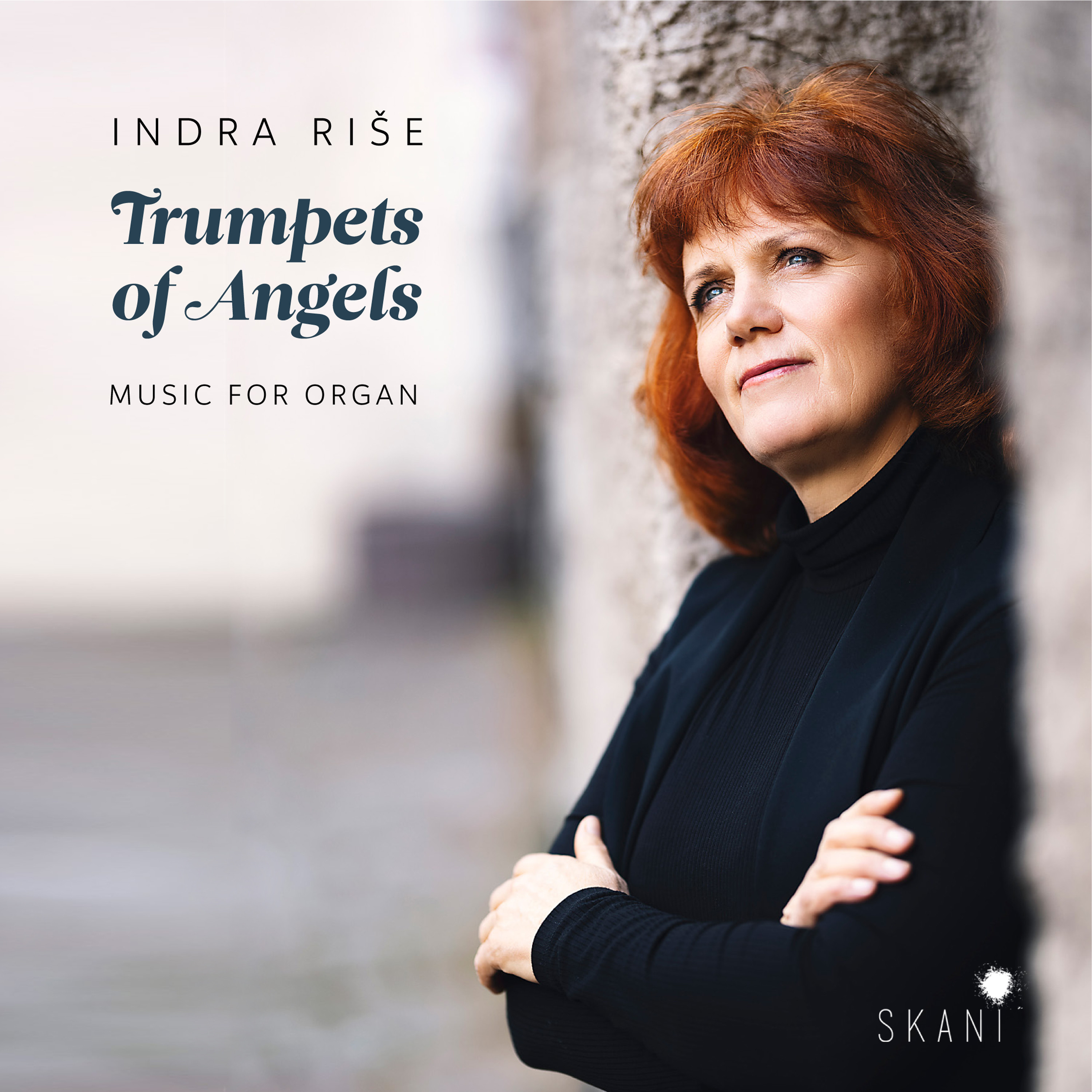CD Trumpets of Angels contains six compositions for organ. As a student Riše played the organ herself, and she cherishes warm memories of this period. ‘It is a complicated instrument and practical experience helps enormously in understanding it. Organists are a separate group of people, very different from pianists, wind players or string players; I felt like part of a family. We helped and supported each other, and even today organists give me tips for improvements of a new score. I enjoy this two-way traffic between composer and performer.’
The album offers a fine sample of her skills. The title piece Trumpets of Angels for organ solo is dedicated to a deceased friend: ‘She was a radiant and spiritual personality. When she died, I imagined that an angel greeted her soul at the gates of another world, with jubilant trumpets.’ The six-minute piece opens with playful figurations in the highest registers, set against roaring chords in the low register. The succeeding tender interplay of musical lines seems to depict the gentle character of the deceased, after which the music dies away in peaceful quietude.
Indra Riše combines the majestic organ with other instruments and the human voice with obvious ease. As in Songs of Happiness, which she composed in honour of the Latvian poet couple Rainis and Aspazia. Riše: ‘They fought for Latvian independence and are national heroes, I much admire their poetry. Their 150th anniversary in 2014 was celebrated grandly in our country, and the state commissioned me to write this cycle. I chose five poems by Rainis, in fact disguised love letters to Aspazia.’
Illuminated by the Sun was composed for solo organ, yet I also hear woodblocks, exclamations similar to Wagner’s ‘hojotoho’ and birdsong. Did Riše use electronics here? ‘No’, she laughs, ‘I tried to treat the organ as an electronic instrument – without using electronics. I added two woodblocks to the instrument, which are played by the organist. And I used the voices of the organist and the registrant, who also operates a plastic nightingale filled with water. Thus I have tried to imitate sounds from nature, such as a storm, the cries of birds or people calling to each other in the woods.’
Strength and endurance
In Interaction for organ and flute the organ only makes its appearance after five minutes. ‘I wrote it for the flutist Imants Sneibis, who draws an admirable wealth of colour from his instrument. At the time I was very inspired by the music of Kaija Saariaho, feeling attracted to the hushed tones and barely perceptible nuances that create an intimate, emotional atmosphere. The first five minutes are a monologue by the flute, after which it becomes part of a dramatic story together with the organ.’
The concluding Fire Ritual for solo organ harks back to an old Baltic ritual, says Riše: ‘This was organised four times a year. During the summer and winter solstices and at the spring and autumn equinoxes, when day and night are of equal length. In spring, people pleaded for success in tilling the land; in summer, they prayed to the sun; in autumn, they gave thanks for the harvest; and in winter, they burned away all negative energy, emotions and diseases.
Proudly: ‘I feel at home in these Latvian traditions, where strength and endurance are passed on from generation to generation.’
Thea Derks, 25/05/2022
atsauksme šeit

